Ten students participating in a study abroad program with the University of Oregon and Planet Drum Foundation in Bahía de Caráquez, Ecuador continued to explore the challenges, tensions, and possibilities for sustainable development in and around the Dry Tropical Forest bioregion. As part of the course work with Professor Jesse Abrams, the students learned about concepts related to community-based conservation and tourism.

This week the group went on a variety of excursions. They visited the Planet Drum greenhouse, took a boat-ride with local fishermen, assisted in earthquake reconstruction with bamboo materials in Bahía, and took a three day trip to the Aguas Blancas community near Puerto Lopez.
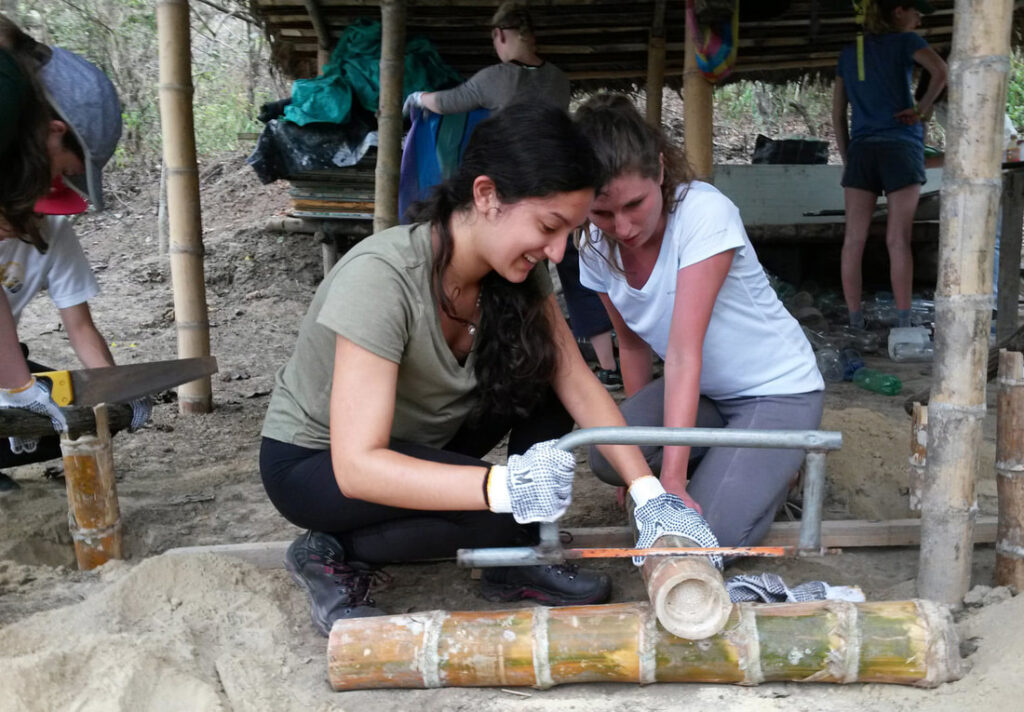
During their second visit to the greenhouse, the students helped improve the general infrastructure including building a bamboo bench under the shade ramada, improving a bamboo fence for storing plastic bottles, and painting a new sign at the entrance. Also, Planet Drum is planting one tree of each species in the vicinity of the greenhouse. Each student planted a tree representing a distinct native Dry Tropical Forest species around the greenhouse.
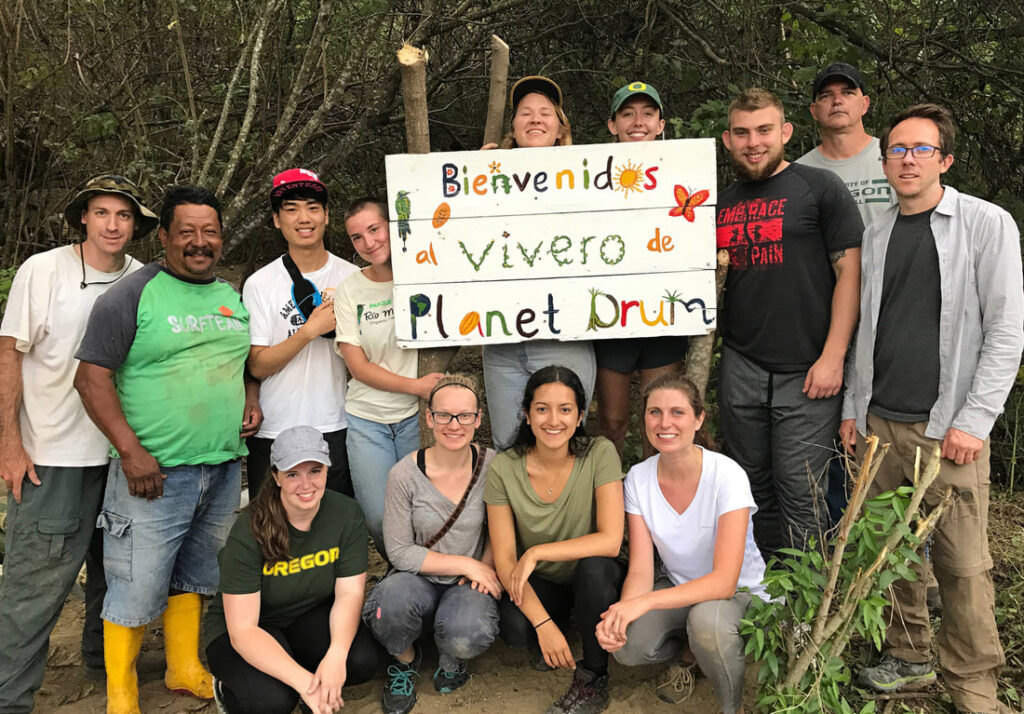
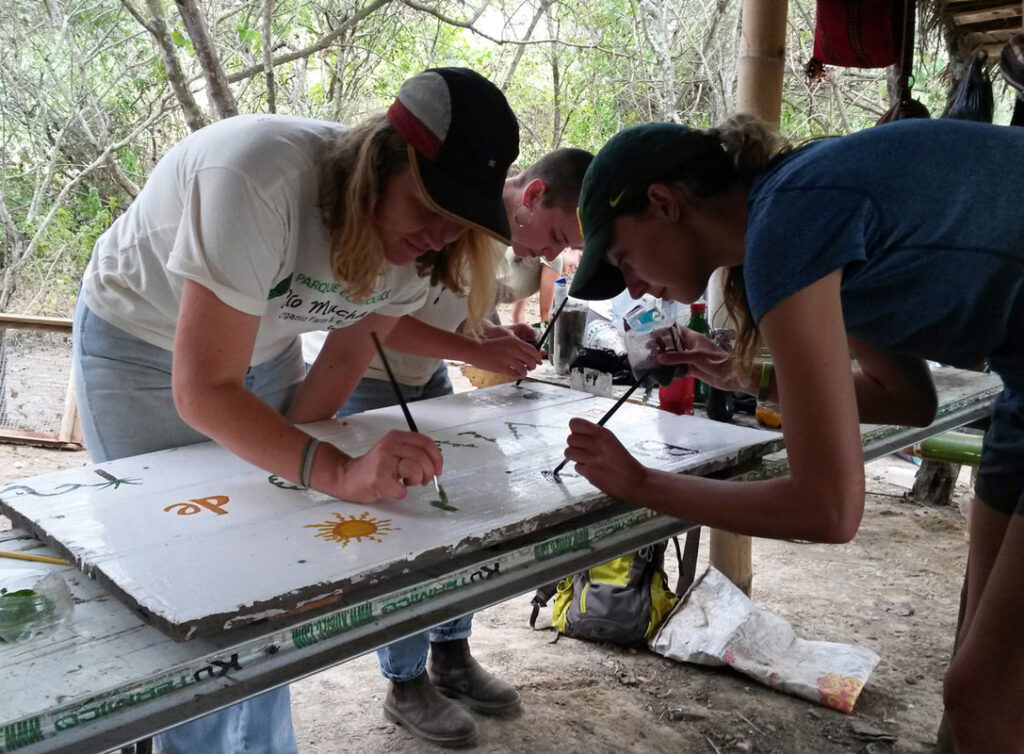
An important aspect of the course is learning about local communities and the social and economic influences on the environment. One of the driving economic forces of the coastal Ecuador region is fishing. The students were introduced to a fisherman, Cristian, in the Leonidas Plaza suburb of Bahía. Cristian explained many of the factors influencing small-scale fishermen including the difficulties with refrigeration, preparing and transporting catches and government intervention and regulation in the industry. After a discussion about fishing in Ecuador, we boarded a panga (small boat) and took a spin around the bay. While in the boat, we were able to see artisan fishermen in dugout canoes throwing atarayas (nets) into the water to catch shrimp. We dropped a long net from the panga to catch fish and shrimp. There wasn’t much in the water, but we were able to examine a handful of various small fish, which we then threw back into the water.
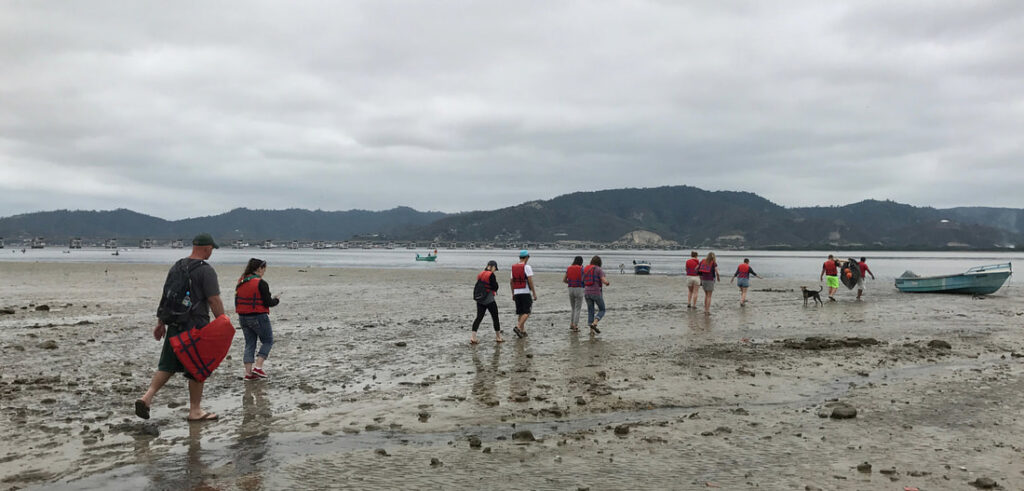

Bahía is still in the process of recovery from an earthquake on April 16th, 2016. The following day, we walked to the center of Bahía where Bahía Beach Construction is building a bamboo house for an elderly couple whose house was destroyed during the earthquake. Our group assisted with the demolition of the old fence and the construction of a new fence made from recycled roof panels and bamboo latillas (slats). Rebuilding with ecologically sustainable and seismic-resistant materials, such as bamboo, is crucial to the long-term recovery of local citizens without further straining regional forest ecosystems. It was rewarding to contribute our grain of sand to process.
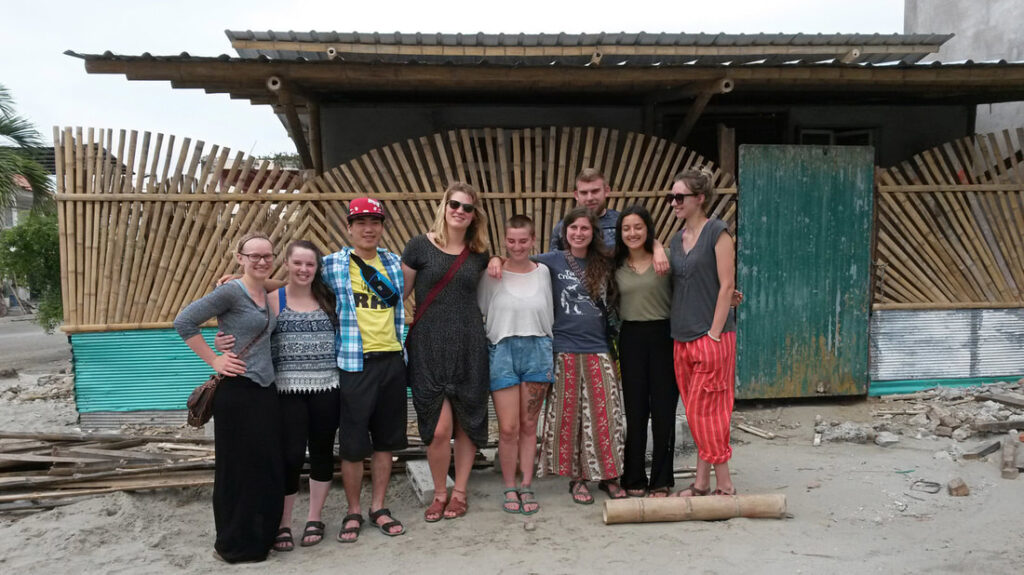

In addition to the day-time activities, evenings at the Planet Drum house included a Spanish-lesson class with Clay’s wife, Margarita and a cooking class with locally renowned chef Stalin Vaca. The students assisted with the preparation of a dinner of crema de zapallo (cream of pumpkin soup) and torta de pescado (baked green plantain meal with slices of Marlin fish).


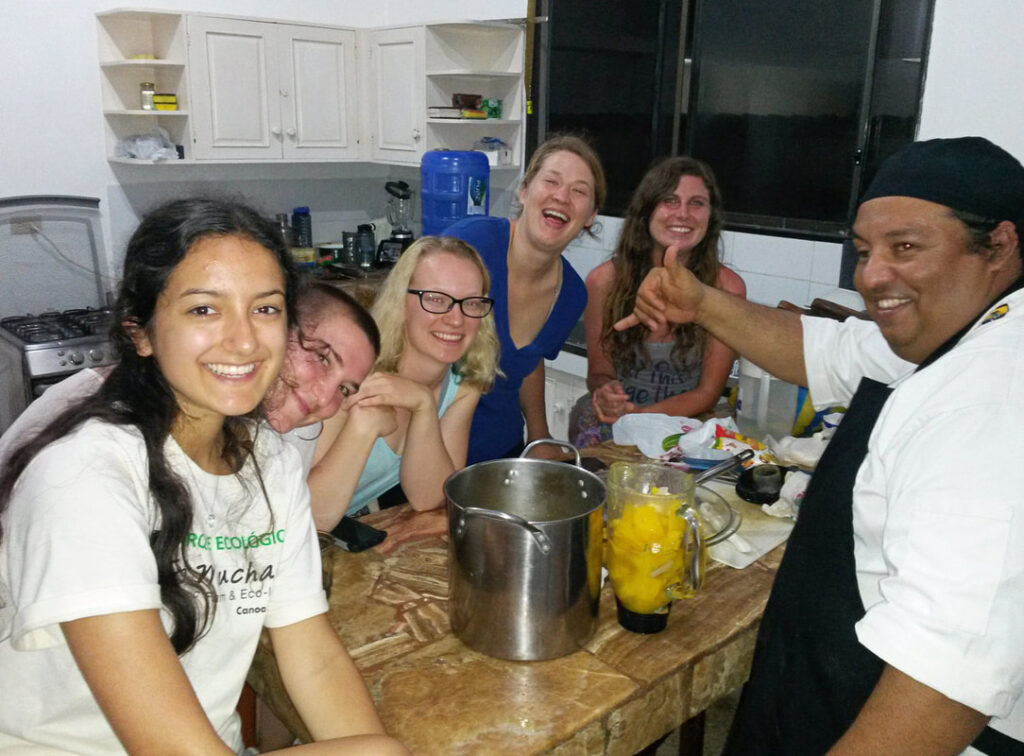
The rest of the week was spent on an excursion to the Aguas Blancas community, near Puerto Lopez (approximately 3 hours south of Bahía de Caráquez). The community is located within the limits of Ecuador’s only coastal national park, Parque Nacional Machalilla, and is dedicated to providing community-based tourism activities that promote ecological conservation. On the first day there, students received a tour of the area, including pre-Colombian archeological sites, a museum with pre-Colombian artifacts, and a pond with mud baths. The second day, the group endured a long but rewarding hike up into the mountains through an ecological transition from Dry Tropical forest to humid, Cloud forest. The following day, most of the group went on a whale-watching tour, while the others visited local beaches. Afterwards, everyone returned to Bahía de Caráquez to rest up for the final week of activities.

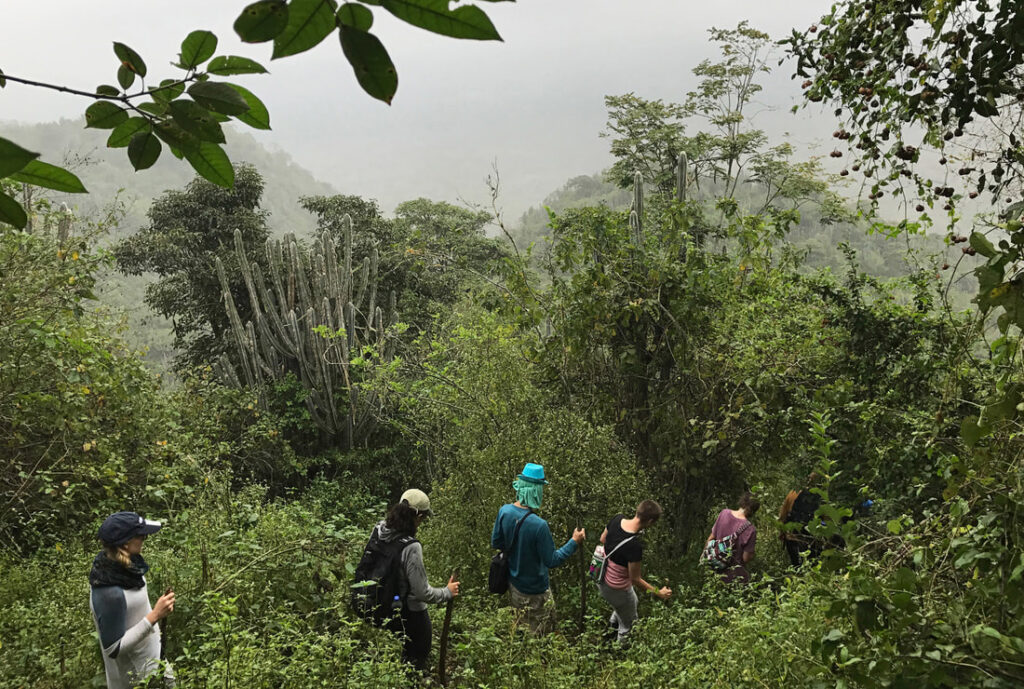

Thanks for sharing. I read many of your blog posts, cool, your blog is very good.
Thanks for sharing. I read many of your blog posts, cool, your blog is very good.